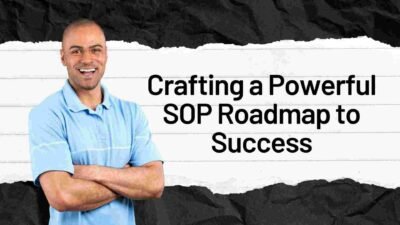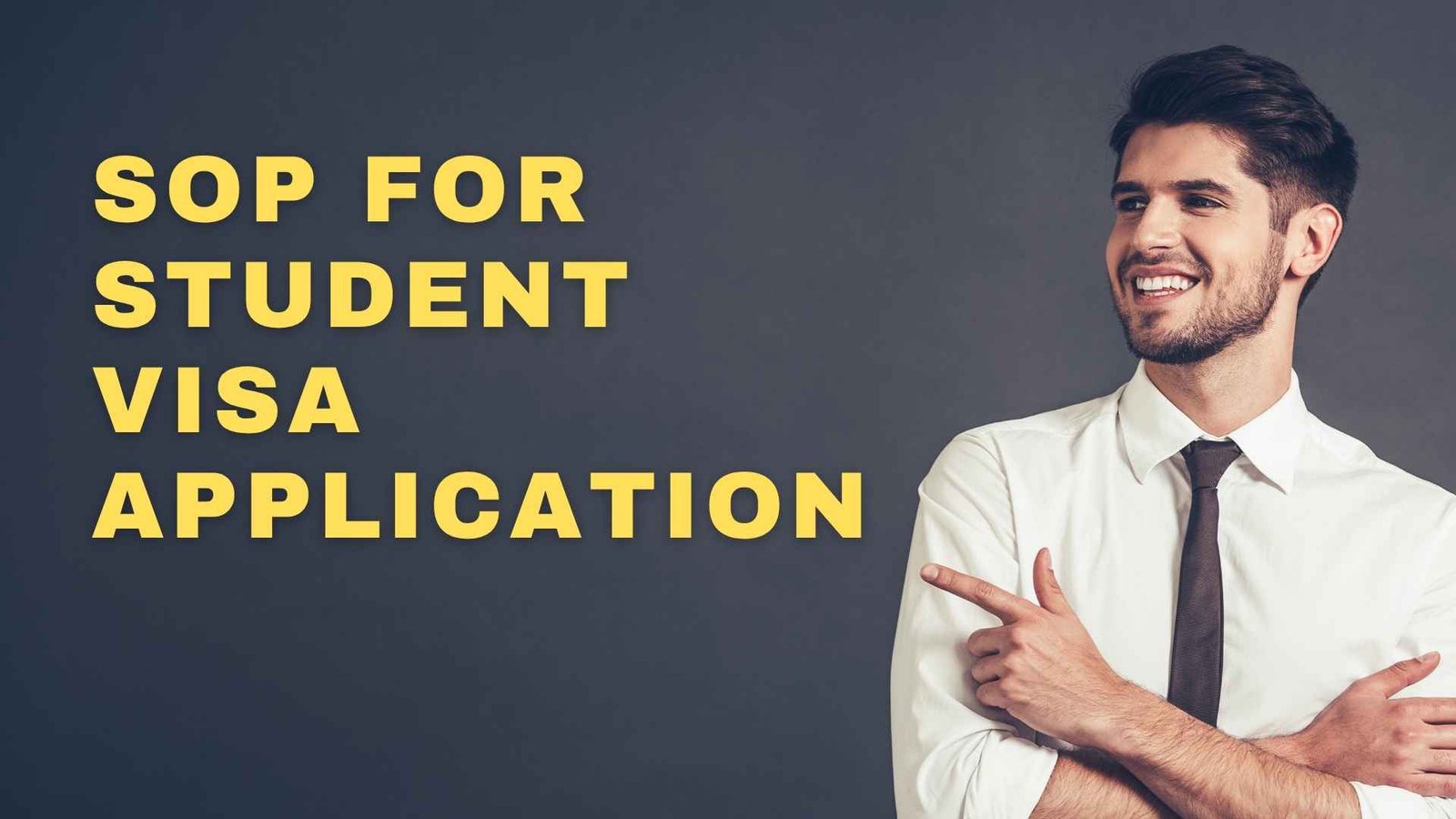The journey to studying abroad is filled with excitement and anticipation, but it also involves navigating a rigorous application process. Among the many documents you’ll prepare, the Statement of Purpose (SOP) stands out as a critical element. It’s not just another piece of paper; it’s your personal narrative, your academic ambitions, and your professional aspirations, all rolled into one compelling document. For informational search, a well-crafted SOP for student visa can significantly influence the outcome of your student visa application, acting as your voice when you’re not there to speak for yourself.
An SOP is essentially a detailed essay that outlines your reasons for pursuing a particular course at a specific institution in a foreign country. It provides immigration officers with insights into your academic background, career goals, and why you believe this international educational experience is essential for your future. A strong SOP demonstrates your genuine intent, academic preparedness, and financial stability, all of which are crucial for securing a student visa. visit this official website.
Crafting a Powerful SOP: Your Roadmap to Success
Writing an effective SOP requires careful thought and strategic planning. Here are the essential components and step-by-step guidance to help you create a document that truly shines: .

Essential Components of a Strong SOP
- Introduction: Hook the reader immediately. State your purpose for applying, the program and university you’re interested in, and briefly what you hope to achieve.
- Academic Background: Detail your previous academic achievements, relevant coursework, projects, and any research experience. Connect these experiences to your chosen field of study.
- Motivation for the Program: Clearly articulate why you want to pursue this specific program. Discuss what excites you about the curriculum, faculty, and unique opportunities offered by the university.
- Career Goals: Outline your short-term and long-term career aspirations. Explain how this particular program will equip you with the necessary skills and knowledge to achieve these goals.
- Why This University/Country? Demonstrate that you’ve done your research. Explain why you’ve chosen this specific institution and why studying in that particular country aligns with your objectives.
- Relevant Experiences: Include any internships, work experience, volunteer work, or extracurricular activities that have shaped your interests and prepared you for your chosen field.
- Financial Capability: Briefly touch upon how you plan to finance your education and living expenses, reinforcing your ability to sustain yourself during your studies.
- Conclusion: Summarize your key points and reiterate your enthusiasm for the program and your commitment to succeeding in your studies.
Step-by-Step Guidance to Crafting an Effective SOP
- Brainstorm and Outline: Before writing, jot down all your relevant experiences, motivations, and goals. Create a logical flow for your SOP, ensuring each paragraph transitions smoothly into the next.
- Tell Your Story: Don’t just list achievements; weave a narrative. Use personal anecdotes to illustrate your passion for the subject, moments that sparked your interest, or challenges you overcame.
- Be Specific: Vague statements won’t impress. Instead of saying “I want to help people,” explain “I aim to develop sustainable agricultural practices to address food scarcity in developing nations.”
- Show, Don’t Tell: Rather than stating you’re “hardworking,” provide examples of projects where you demonstrated dedication and perseverance.
- Focus on Your Academic Goals: Clearly link your past academic journey to your future aspirations. Explain how this program is a logical next step in your educational and professional development.
- Highlight Research and Faculty (if applicable): If you’re applying for a research-intensive program, mention specific faculty members whose work aligns with your interests and research goals.
- Proofread Meticulously: Errors in grammar, spelling, and punctuation can detract from your professionalism. Read your SOP multiple times and have others review it.
Common Mistakes to Avoid
- Plagiarism: Never copy content from SOP for student visa sample documents or the internet. Your SOP must be 100% original. Visa officers can easily detect copied content, leading to immediate rejection.
- Generic Content: Avoid using a SOP format that isn’t tailored to your unique situation. A generic SOP shows a lack of effort and genuine interest.
- Excessive Jargon: While demonstrating knowledge is good, avoid overly technical language that may not be understood by a general audience (like a visa officer).
- Overly Casual Tone: Maintain a professional and respectful tone throughout. This is a formal document.
- Focusing Too Much on the Destination: While it’s good to mention why you chose the country, the primary focus should be on your academic and career goals and how the program aligns with them.
- Lying or Exaggerating: Be truthful about your qualifications and experiences. Any discrepancies can lead to serious consequences.
- Poor Structure and Flow: A disorganized SOP is difficult to read and understand. Ensure logical transitions between paragraphs.
- Exceeding Word Limits: Adhere to any specified word or page limits. Conciseness is key.
The Importance of Tailoring Your SOP
One of the most crucial aspects of writing a strong SOP is tailoring it to each specific institution and program. A generic SOP, even if well-written, will likely fall flat. Research the university’s mission, values, and specific program offerings. Mention professors whose work interests you, specific courses you’re excited to take, and unique facilities or opportunities available. This demonstrates genuine interest and shows the admissions committee that you’ve done your homework. For a Statement of Purpose for visa application PDF, this level of detail is paramount.
FAQs Section
1. What is the ideal length for an SOP?
While there’s no strict rule, most universities and visa applications prefer an SOP that is typically between 500 to 1000 words, or roughly one to two pages long. The key is to be concise and impactful, conveying all necessary information without being overly verbose. Always check if the specific university or embassy has stated guidelines.
2. How personal should an SOP be?
An SOP should be personal enough to convey your unique story, motivations, and aspirations. You should use personal anecdotes to illustrate your passion and experiences. However, avoid getting too personal or discussing irrelevant details. The focus should always remain on your academic and career goals, and how the chosen program aligns with them. It’s about demonstrating your genuine interest and suitability for the program, not sharing your life story.
3. Can I use a template for my SOP?
While looking at SOP for visa sample or SOP samples PDF can provide a general idea of structure and content, you should never use a direct template or copy-paste content. Every SOP must be original and reflect your individual journey, aspirations, and reasons for choosing a specific program and university. Using a template will make your SOP generic and could lead to a rejection due to plagiarism. Use samples for inspiration, not duplication.
4. What should I include in the concluding paragraph of my SOP?
The concluding paragraph should effectively summarize the key points discussed in your SOP. Reiterate your enthusiasm for the program and the university, and briefly re-emphasize how this opportunity aligns with your future career goals. You can also express your confidence in your ability to succeed in the program and contribute positively to the university community. End with a strong, forward-looking statement that reinforces your commitment.
5. How can I ensure my SOP is free from plagiarism?
To ensure your SOP is free from plagiarism:
- Write everything in your own words: Do not copy phrases, sentences, or paragraphs from any source, including SOP for student visa application PDF samples or online articles.
- Cite any external information (if applicable): While generally not common in SOPs, if you must refer to a specific research paper or theory, ensure you properly cite it.
- Use plagiarism checkers: After drafting your SOP, run it through reputable plagiarism detection software. This can help identify any unintentional similarities with existing content.
- Get feedback from others: Have trusted friends, mentors, or academic advisors review your SOP. They might catch instances of unintentional plagiarism or suggest rephrasing.
Conclusion
The Statement of Purpose is undeniably a cornerstone of your student visa application. It’s your opportunity to present a compelling case for why you deserve to study abroad, showcasing your genuine intent, academic preparedness, and future aspirations. A well-written SOP, free from common mistakes and meticulously tailored to your chosen program, can significantly enhance your chances of securing that coveted student visa. Remember, it’s not just a formality; it’s your story, told in your own words.
Ready to Start Drafting Your SOP?
Don’t let the thought of writing your SOP overwhelm you! Take the first step today and begin outlining your experiences and aspirations. For additional resources, personalized guidance, and expert review services, visit the Study Abroad Help website. We’re here to assist you every step of the way in making your study abroad dreams a reality. Let us help you craft an SOP that truly stands out!


COMMENTS